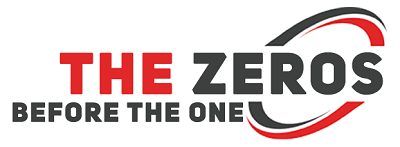There are a few different types of life insurance policies that business owners can consider. Some common options include term life insurance, whole life insurance, and universal life insurance. Each type of policy has its own set of benefits and drawbacks, so it’s important to compare options before selecting a policy.
Term life insurance is the most basic type of coverage, and it provides protection for a set period of time, usually 10-20 years. If the policyholder dies during the term of the policy, the beneficiaries will receive a death benefit. Term life insurance generally has lower premiums than other types of coverage, but it does not build cash value and it expires at the end of the term.
Whole life insurance provides lifetime coverage and builds cash value over time. The cash value can be used to help pay premiums or can be accessed in the event of an emergency. Universal life insurance also provides lifetime coverage and builds cash value, but it offers more flexibility than whole life insurance, allowing policyholders to adjust their premium payments and death benefit amount.
When choosing a life insurance policy, business owners should consider their needs and budget to find the best coverage for their situation.
Where might life insurance be used for a business owner(s)…
The two primary uses of life insurance for business owners are (1) buy-sell agreements and (2) split-dollar arrangements.
Split-dollar life insurance is a type of insurance arrangement where the policyholder and the insurer agree to split the premiums, benefits, and responsibilities for the policy. Under this arrangement, the policyholder typically pays a portion of the premium while the insurer pays the remainder. The death benefit from the policy is then divided between the policyholder and the insurer according to the terms of the agreement.
A buy-sell agreement is a contract between business owners that outlines what will happen to the business if one of the owners dies or becomes incapacitated. The agreement typically stipulates that the business will be sold to another owner or partner, often at a predetermined price. Buy-sell agreements can help ensure continuity for businesses in the event of an owner’s death or disability.
Both split-dollar life insurance and buy-sell agreements can be important tools for business owners to protect their businesses and themselves. Each has its own advantages and disadvantages, so it’s important to carefully consider which is right for your business.
Split-dollar life insurance can be a good option for business owners who want to insure multiple people within their organization. It can also be used to fund buy-sell agreements. One advantage of split-dollar life insurance is that it can provide death benefits to multiple beneficiaries, which can be helpful if the business has more than one owner. Another advantage is that the policyholder can choose how the death benefit is distributed, which can give them more flexibility in how they use the funds.
A disadvantage of split-dollar life insurance is that it can be more expensive than other types of life insurance. This is because the policyholder is responsible for paying a portion of the premium. In addition, split-dollar life insurance agreements can be complex, so it’s important to make sure you understand all the terms and conditions before entering into one.
Buy-sell agreements can be a good option for business owners who want to protect their interests in the event of their death or disability. One advantage of buy-sell agreements is that they can provide for a smooth transition of ownership if one of the owners dies or becomes incapacitated. Another advantage is that buy-sell agreements can help ensure that the business continues to operate even if one of the owners dies or becomes disabled.













